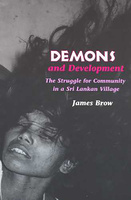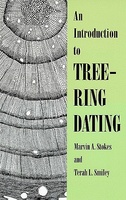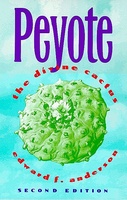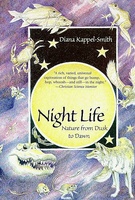The University of Arizona Press is the premier publisher of academic, regional, and literary works in the state of Arizona. They disseminate ideas and knowledge of lasting value that enrich understanding, inspire curiosity, and enlighten readers. They advance the University of Arizona’s mission by connecting scholarship and creative expression to readers worldwide.
Tarahumara
Where Night is the Day of the Moon
Chicanismo
The Forging of a Militant Ethos among Mexican Americans
The Road to Mexico
Hispanic Nation
Culture, Politics, and the Constructing of Identity
Molded in the Image of Changing Woman
Navajo Views on the Human Body and Personhood
Koviashuvik
Making a Home in the Brooks Range
Fear Falls Away
and Other Essays from Hard and Rocky Places
Race and Class on Campus
Conversations with Ricardo’s Daughter
Cultural Politics in Revolution
Teachers, Peasants, and Schools in Mexico, 1930-1940
Ceramic Commodities and Common Containers
The Production and Distribution of White Mountain Red Ware in the Grasshopper Region, Arizona
Indians and Anthropologists
Vine Deloria, Jr., and the Critique of Anthropology
Homicide, Race, and Justice in the American West, 1880-1920
Breathing Between the Lines
Demetria Martínez has entered the public consciousness by way of the heart. In 1994, she captured a Western States Book Award with her first novel, Mother Tongue, which went on to win widespread national attention. Now, in Breathing between the Lines, the writer returns to poetry, her first love.
Many of the poems in this book touch on the themes from Mother Tongue, about an American activist who falls in love with a Salvadoran political refugee. Weaving together threads of love and family, social conviction and activism, loss and renewal, Breathing between the Lines carries the reader deep inside the head and heart of a talented Chicana writer.
Page by page, the journey is an exhilarating one. What we find at the end is up to us.
The Telling Distance
Winner of the 1990 Western States Book Award for Creative Nonfiction, The Telling Distance evokes the yearning expanses of our southwestern deserts and finds them full of sensuous marvels, erratic life forms, eccentric fellow travelers, dry humor, and surprise. In prose that revels in paradox, it reveals desert distances to ...
If a Chimpanzee Could Talk and Other Reflections on Language Acquisition
Settlement Ecology
The Social and Spatial Organization of Kofyar Agriculture
Border Visions
Mexican Cultures of the Southwest United States
Where the Dove Calls
The Political Ecology of a Peasant Corporate Community in Northwestern Mexico
Riparian Ecosystem Recovery in Arid Lands
Strategies and References
Peyote
Dry whiskey, Divine herb, Devil's root, Medicine of God, Peyote: for some people, to use it is to hear colors and see sounds. For many Native Americans, it brings an ability to reach out of their physical lives, to communicate with the spirits, and to become complete. For chemists, pharmacologists, and psychiatrists, the plant is ...
Hopi Basket Weaving
Artistry in Natural Fibers
Demons and Development
The Struggle for Community in a Sri Lankan Village
An Introduction to Tree-Ring Dating
The Planet Mars
Twenty years after the Viking missions of the '70s, we are finally going back to Mars. No fewer than ten missions are planned for the period between 1996 and 2003, and it is likely that human explorers will follow soon after--perhaps by the middle of the twenty-first century. When they do, they will owe much to the Mars of romance, to ...
Re-imagining the Modern American West
A Century of Fiction, History, and Art
Danger Zones
Homosexuality, National Identity, and Mexican Culture
Bringing the Mountain Home
"We like to think that in the wilderness we escape streets and signs. We venture beyond familiar places where everything has been named, made human, possessed, where all paths are known, mapped, set in concrete or ink.. A wilderness is roadless, both by agreement and by law. Surely this should also mean trailless, signless, mapless, nameless: no trace of human writing on the land, nothing to say that we have inscribed this place as ours. An absence that signals the purity of the land, an absence at the center of our desire.
Maybe we should go to the wilderness to get lost, to lose the familiar way of cities and towns, to let loose of our everyday sense of our place, and find another way of being in the world. Lost, amazed, I might forget myself and find myself, a creature among other creatures, a reed in the wind, fed by sunlight, dead plants and animals, minerals from the mountains crumbling at my feet." --SueEllen Campbell, from Bringing the Mountain Home A deeply loved landscape holds us fast to the planet, says SueEllen Campbell in this engaging exploration of our relationships with wild places.
What lies at the core of such love? What draws us to a windblown mountaintop, the slickrock desert, the crash and roar of a whitewater river? What desires shape our wilderness journeys--backpacking, rafting, hiking--and what events, emotions, and ideas shape the stories we tell about them? Campbell explores these questions through personal narratives that float between memoir and meditation, nature essay and adventure story. She travels to a remote spot in Kenya, where thousands of flamingos "encircle the geysers and carpet the glassy lake. In the rain forests of Dominica, she marvels at parrots as bits of green forest tipped with scarlet and given wing.
But always she returns to the intimate landscapes of her home in the Rocky Mountain and desert West. There, a trudge into the Grand Canyon becomes a pilgrimage into the earth's immensity. Layers of personal grubbiness offer an introduction to geology, and a comical obsession with equipment hints at how to live in the moment. A climb up a familiar mountain turns into a brush with death.
By turns celebratory, funny, lyrical, and down-to-earth, Campbell's is an exuberant new voice that will appeal to many readers. Lovers of the outdoors, armchair travelers, and students of nature writing will find in this book a field guide to the emotions and ideas set loose in us by wild places.



















































